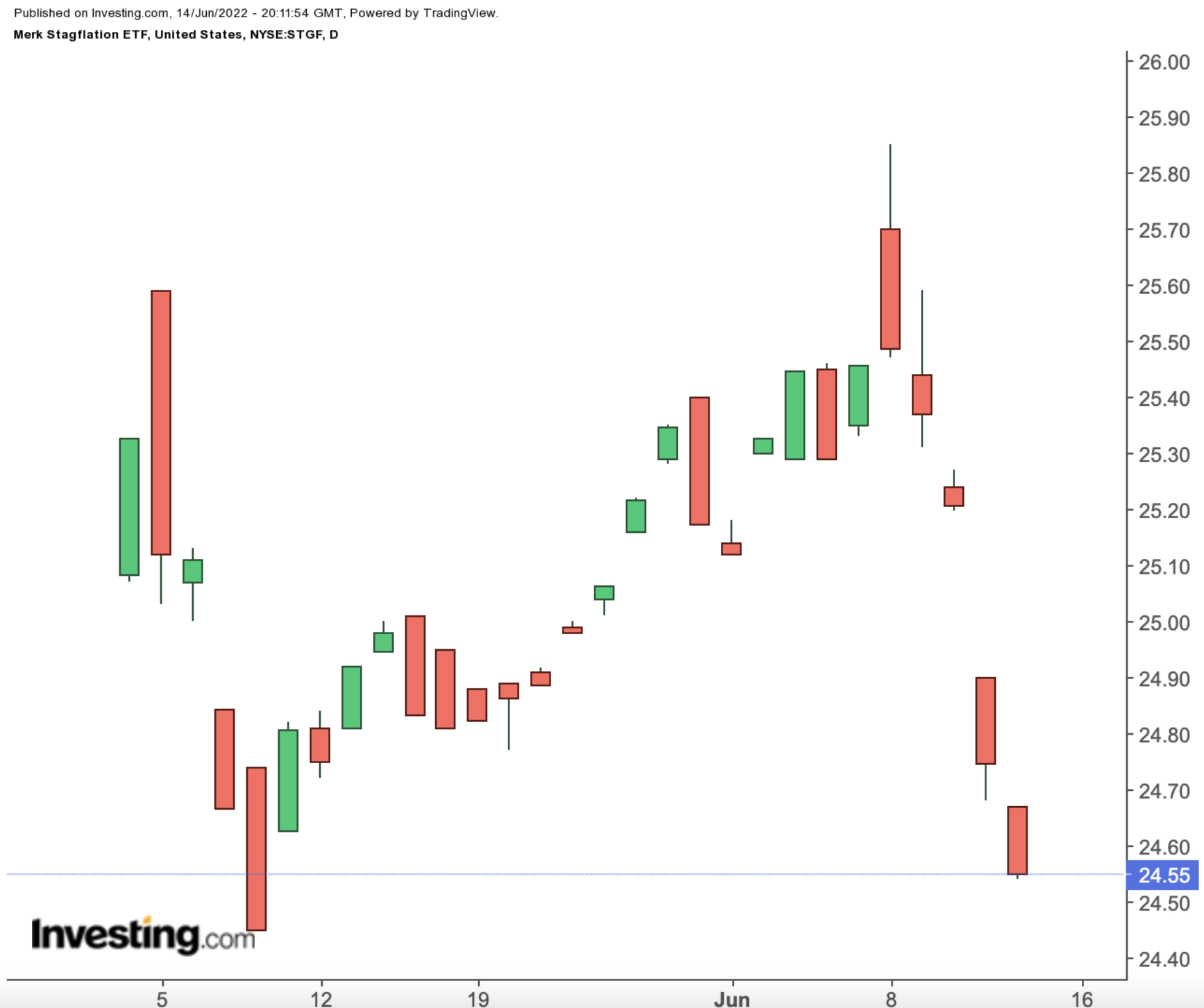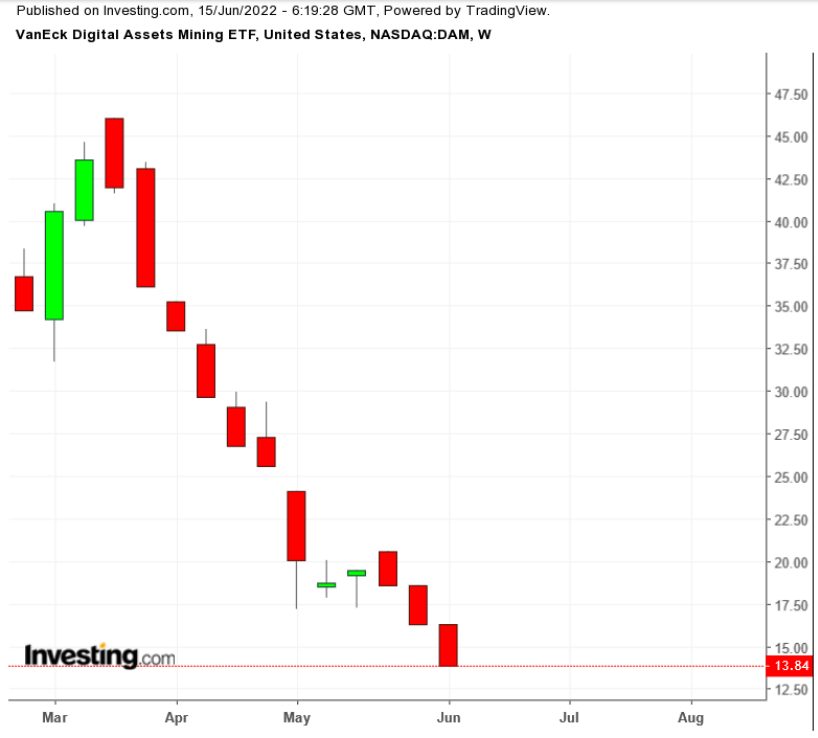Despite the current US market rout, the popularity of exchange-traded funds (ETFs) has been rising steadily. Hardly a week goes by without a new fund hitting Wall Street's trading floor.
Recent data from the NYSE shows that there are currently about 2,950 ETFs listed in the US, with over $6.3 trillion in net assets. In the past year, close to 500 new ETFs were launched.
Meanwhile, extreme volatility and uncertainty continue to stir up broad markets. As a result, investors have been seeking shelter in ETFs that allow them to invest in a basket of securities that may provide diversification.
With that information, here are two recently launched ETFs that deserve readers' attention. As these new funds are small and have a limited trading history, potential investors must complete further due diligence before hitting the buy button.
1. Merk Stagflation ETF
- Current Price: $24.40
- 52-week range: $24.40 - $25.85
- Expense ratio: 0.45% per year
On June 7, the World Bank issued a stark warning about the risk of stagflation, which means a combination of stagnating economic growth, high inflation, and rising levels of unemployment.
The latest numbers suggest that between 2021 and 2024, global growth could decelerate:
"by 2.7 percentage points [.…] more than twice the deceleration between 1976 and 1979."
Economists remind us about the stagflation in the 1970s and the OPEC oil embargo of 1973-1974, when "President Nixon tried to alleviate these problems by devaluing the dollar and declaring wage- and price-freezes."
Yet, SwissRe regards current conditions as:
"temporary and driven by cyclical factors, rather than the structural stagflation seen in the 1970s."
Nonetheless, World Bank President David Malpass points out there could be years of pain ahead even if global markets manage to scape stagflation.
Therefore, our first fund for today, the Merk Stagflation ETF (NYSE:STGF), could appeal to those concerned about the effects of stagflation. The fund provides exposure to Treasury inflation-protected securities (TIPS), gold, oil, and US real estate. The weighting for each asset class changes depending on market conditions.

STGF, which tracks the Solactive Stagflation Index, was first listed in early May. Assets under management stand at $1.97 million. The fund currently invests in four other funds, namely:
- Schwab U.S. TIPS ETF (NYSE:SCHP)—down 11.5% year-to-date (YTD);
- Invesco DB Oil Fund (NYSE:DBO)—up 49.3%;
- VanEck Merk Gold Trust (NYSE:OUNZ)—down 1.2%;
- Vanguard Real Estate Index Fund ETF Shares (NYSE:VNQ)—down 24.7%.
Since its inception, STGF has lost around 1.5%. Investors who expect these four asset classes to provide shelter in the case of stagflation should put STGF on their radar.
2. VanEck Digital Assets Mining ETF
- Current Price: $13.84
- 52-week range: $13.81 - $46.05
- Expense ratio: 0.50% per year
Recent metrics highlight:
"The global Digital Asset Management (DAM) market size is projected to grow from USD 4.2 billion in 2022 to USD 8.0 billion by 2027, at a Compound Annual Growth Rate (CAGR) of 13.6%."
For many retail investors, digital assets bring to mind cryptocurrencies such as Bitcoin and Ethereum, as well as crypto miners. In 2021, we saw record prices in major cryptocurrencies and stocks that give access to these digital assets. Yet, 2022 has been a different story.
So far in the year, Bitcoin and Ethereum are down around 52% and 67%, respectively. In addition, crypto miners and financial technology (fintech) stocks have also lost significant value.
Therefore, our second new fund, the VanEck Digital Assets Mining ETF (NASDAQ:DAM), could appeal to contrarian investors who expect digital asset miners to recover in the year's second half. The fund was first listed in early March and currently has $1.4 million in assets.

DAM, which tracks the MVIS Global Digital Assets Mining Index, holds 25 stocks. Over 60% of the portfolio is the top 10 names.
Around half of the companies are US-based. Next come those from Canada, China, Germany, Australia, and the UK.
Riot Blockchain (NASDAQ:RIOT), Marathon Digital Holdings (NASDAQ:MARA), Canaan (NASDAQ:CAN), Hut 8 Mining (NASDAQ:HUT), and Germany-based Northern Data (F:NB2) are among the top names on the roster.
DAM has lost about 63.2% of its value since its listing. Readers who expect the dust to settle in digital assets may want to keep an eye on DAM.
